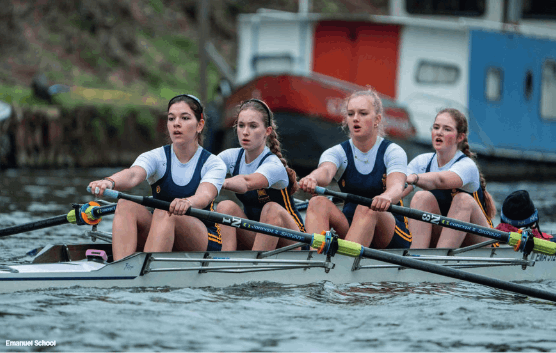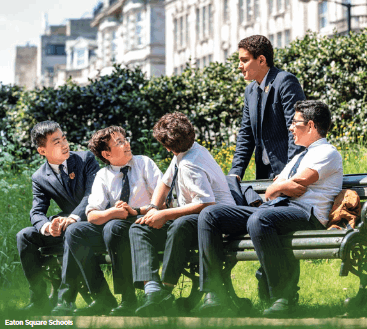Menu
Dina Shoukry investigates how perceptions are changing and why a good tutor can be worth their weight in gold.
I’m everyone’s dirty little secret,” chuckles Tash Rosin, founder of Teatime Tutors, who like many private tutors, was herself once a teacher in the state and independent sectors. “The problem is that there are still old school tutors out there charging extortionate amounts of money and promising secondary school places to parents. As an industry, that’s simply not how we work anymore.”
For years tutors have been criticised for hot-housing children into top-notch private schools and in their defence, the demand often comes from parents themselves, as well intentioned as they are. “It’s about educating parents,” explains Mary Lonsdale, founder of tutoring agency, Mentor Education. “Parents overwhelmingly bias tutors who say they’ve got children into certain schools rather than understanding if they have the tools to teach their child.” A crucially important job of a good tutor is to advise parents on which schools their children will be suited to depending on their academic ability, interests and personality. Sometimes, this means having tricky conversations with parents who are aiming too high.

Like any other industry, there are good and bad tutors. “Bad tutoring only focuses on the exam as the one outcome you are working towards,” explains Adam D’Souza, founder of tutoring company, Commons Education. “These tutors don’t have the teaching background to break down the different skills that a child needs. As a result, they end up doing endless past papers which are a total drudgery for the child and if they do pass, they haven’t got the capability to thrive in that learning environment.”
“You can always spot the child that has been over-tutored a mile away,” says Dr Adrian Rainbow, Headmaster at Eaton Square Senior School. “They may get into a great school but how is that sustainable? And what is the impact of that going to be on their mental health? You want children to be in a school where they can naturally access the curriculum without too much help.”
Suzie Longstaff, Principal at London Park Schools agrees, “Secondary schools, grammar or otherwise, are increasingly disinterested in the 11+ test. They really want to see the whole child.”
EXAM PREP – A MARATHON NOT A SPRINT
You wouldn’t run a marathon every day to train for the race or play an entire five-set tennis match. Similarly, your child’s entrance exam prep needs careful long-term planning, because endless past papers are a sure way to switch your child off studying.
Instead, think about which skills need more practice. How can your child build up their stamina and fitness for exams, such as their attention span, vocabulary and accuracy in maths and reasoning? We have been piloting the Academic Profiling Test, an AI-powered assessment tool that gives parents detailed, topic-by-topic data that benchmarks a child’s likely performance in entrance tests and areas where they might benefit from some additional ‘training’. Good tutors add huge value as they know your child’s academic performance and can advise on what focused prep work would be most effective.
Source: Commons Education
Head at London Park School Clapham. “Our process is structured around something that is broader, more holistic, looking at the whole child, and their ability to think critically, interact and work with their peers. So, we are looking at the skill sets, rather than trying to get an artificially curated snapshot of ability at one moment in time.”
Good tutors welcome this. Their primary goal is to enhance a child’s education, not to pass exams. Charlotte Hyde, founder of Hyde Tutoring says, “We are just teaching children the syllabus which is exactly what the school does. It’s not voodoo. The goal is not to create a false impression of the child’s abilities but to build their confidence, so they’re not overwhelmed by the exams, and to increase the chances that they manage to show their full capabilities on the day.”
Lonsdale agrees, “The aim is to put children at ease, so they are not completely thrown by the process. We are seeing even more of an emphasis every year on the interview aspect of the common entrance. Group activities and even taking part in lessons for the day are big at the moment. Group tasks and discussions enable the school to see how the child behaves. They are looking for children who can collaborate.” To help with this, Mentor Education run practice group sessions. “In one exercise, we tell the children they are stranded at sea. Someone has water, someone has water purification tablets, someone has sunscreen, and someone has a fishing rod – what should they do? It’s all about practice and behaviour, there is no right or wrong answer.”

Most tutors will spend one hour a week with a child and homework depends on needs and abilities. “I suggest a child receives one hour a week tutoring from me,” says Rosin who tutors up to the 11+, “with 30 minutes of homework to consolidate what we did in the lesson,” she adds. “At times I will extend these lessons as we near exams so that I can fit in some reasoning and often ask parents to revise at home, but this boils down to the importance of choosing the right school and not ‘hot-housing’ to attain the best exam result for what might not be the most suitable school for the child.”
There is a plethora of reasons that parents invest in tutors; their child may be falling ehind in a subject at school, or they may have a special need and benefit from one-on-one attention, or they may just not gel with their teacher that year. “We have quite a lot of students who are disengaged with school and who are struggling,” says Hyde. “And so, what the parents want is someone to really make learning fun. That’s the number one priority. Or we have home-schooled children who are out of school for bullying or health reasons. Once again, it’s about getting them re-engaged with learning.”
The beauty of one-to-one tuition is that tutors can really personalise their teaching to engage students. “I find materials and resources that are going to speak to a child’s interest and captivate them and then build on that,” says D’Souza. “My aim as a tutor of nine-, 10- and 11-year-olds is how I can help them become really fantastic GCSE or A-level students. It’s about giving them those foundational skills, capabilities and knowledge that they can build on.”
The pandemic also has a lot to answer for in terms of academic and social skills gaps. I am seeing some serious gaps in children’s ducation – especially in maths – filtering hrough and that is my primary focus,” says osin. “The school places become secondary o the child’s educational needs.”
“The capabilities of my Year 7 and even y Year 9 students in terms of how they rganise themselves, how they manage their ime, how they relate to people and the kind of language and concepts they use in their daily lives is not as sophisticated or grown-up as it was pre-Covid,” adds D’Souza. “I feel that I’m as much a coach as I am a teacher now, coaching around how to do things – rehearsing and practising.”

Even LPS’s Longstaff and Eaton Square Senior School’s Rainbow concede that tutoring can be great for children that need extra help. “I’m not really a fan of tutoring at all,” says Longstaff, “but the only time it works is if the student needs a little bit of catch-up and reinforcement to give them confidence with their reading, phonics, spelling or comprehension.” Both schools are part of the Duke’s Education group which includes tutoring agencies JK Educate and Oxbridge Applications, and therefore have qualified and well-trained tutors at their fingertips.
Once the preserve of high-earners, tutoring is now also accessible to disadvantaged pupils through the National Tutoring Programme (NTP). Although not without its flaws, this is a government scheme that provides extra help for disadvantaged pupils through their schools.
Research by the Sutton Trust, which campaigns for greater social mobility through education, has shown that the NTP has almost eradicated the gap in access to tuition enjoyed by wealthier families. The trust found that 32% of children in the worst-off households reported taking up extra tuition in school, compared with 22% in the most well-off families and once private tuition was included, the trust found that 39% of those from the most well-off households were tutored in 2022, compared with 37% from the worst-off households.
The message is clear both from schools and tutors: the fixation on common entranceexams as the end goal is wrong, but realistically in the arms race for secondary places, it is simply not going to abate.
Instead, every parent’s aim should always be the child’s learning and wellbeing. Are they tutoring their child to engage them with learning and prepare them for the future or simply to pass an exam? Whilst tutoring may no longer be a ‘dirty little secret’ and is far more normalised now than ever before, parents still need to be deliberate in their choices as to why their child needs a tutor and who to hire. A good tutor who enhances their learning and helps them thrive can be worth their weight in gold.